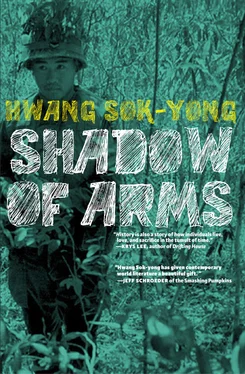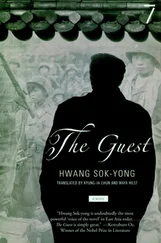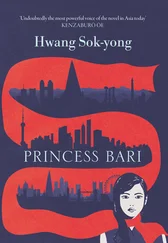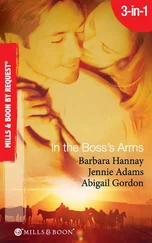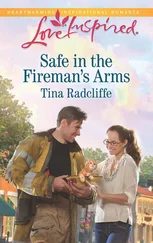The truck could be heard driving away. Another man with a crew cut came in and said, “There’s a message from a customer, sir.”
“Take Pan with you and go.”
“But the payment. .”
“We’ve arranged to meet at the Bamboo.”
“Fine.”
The crew cut left and Oh came in.
“Chairman, what’s this? All that fuss for $200?”
“You’re too greedy, your guts are hanging out from your belly, might as well carry them in a bag,” the chairman said, poking Oh’s fat stomach. “Look, you should let your guts swell a little at a time. This is only the first of many new deals.”
“And if there’s any mistake, I’m the one who gets caught,” said the staff sergeant, putting his money in his pocket.
“Pointer is the one who’ll get caught,” said the chairman. What he meant was that the master sergeant, not even a detachment chief, was far too greedy. The chairman lined up the mahjong tiles for a new game.
“Gluttony will make you sick. You’ll be doing business with us only when we deal with the Korean soldiers.”
“Let’s not be too harsh, now.”
“Look, we’re only civilians. If you feel wronged, then take off the uniform.”
The staff sergeant got up. Thinking he was angry, the chairman grew uneasy and said, “I was just kidding, you know. I’ll have you earning a hundred dollars a day. You said you’re headed home in three months, right? Ten thousand is a sum even the Americans would shoot each other for.”
“The PXs, all three of them, are under my charge.”
“I know. That’s why I invited you in.”
The staff sergeant stopped the station wagon as it was about to leave. “Give me a lift to Doc Lap.”
“The Dragon Palace?”
The Vietnamese, Pan, moved to the back seat and the staff sergeant got in the car. He thought he should, after all, look for a broker who could put him in direct touch with Vietnamese dealers. Then every transaction that went through the PX would fall into his hands.
“The surest way for the people to liberate themselves is through revolutionary violence and revolutionary war. There are many forms of revolutionary violence: a political violence, an armed violence, and a violence that combines the two. Against the policies of the enemy that firmly maintain an absolute grip on politics and at the same time exploit military forces as a political weapon to suppress our revolution, our Vietnamese comrades now must exercise a political violence coupled with armed revolt.
“Thanks to the revolutionary struggle waged by our comrades, we have learned how to revive our people and how to develop our precious experience.”
Pham Minh was reading a speech given by General Vo Nguyen Giap published in Hoc Tap .
“Unification can be realized through the accomplishment of the socialist revolution in the North and of the national democratic revolution in the South, thereby overcoming internal conflicts and jointly calling forth the subliminal national consciousness.”
He couldn’t keep reading because of the sound of the rain. It was pouring outside. The morning session of political education was over and discussion was scheduled for the afternoon. The pinging of raindrops striking the broad leaves of surrounding trees filled the entire space of the open quarters. Ten of his comrades were staying together there on bamboo bunks. It was a large thatched hut, with palm leaves fastened over the straw roof for camouflage. From the sky it blended into the dark green of the jungle. A dozen similar structures had been built along the edge of the dense rainforest. It was a conveniently located assembly point for guerrilla volunteers sent by their respective regional committees. After assembling there, they would be sent on to the provisional military school for training.
The eight men who had departed from Da Nang had left heading westward on a freight truck bound for the Central Highlands. Thanh sat next to the driver and the others rode in the back with their assorted gear. They passed easily through several checkpoints near Da Nang by showing their IDs, but the inspections got stricter as they went deeper in. They made a space in the middle of the truck’s bed under sacks of rice, dried fish, and the other miscellaneous cargo they were hauling from the city. There was so little room that the seven of them in the back had to be cramped together with legs bent and nearly entwined. At checkpoints, they could overhear the casual dialogue exchanged between Thanh and the police.
“Long time no see. How are your nephews doing?”
“Thanks to you they’re fine. How’re things on the other side?”
“Operations have been stepped up, so all the roads have been completely blocked. You’ll probably have to make a detour through the mountains.”
“Thanks. Let me and my nephews through.”
“Tell them your destination is a village half a mile on; they’ll be less suspicious.”
After the cursory checking of the cargo in the back, the truck was allowed to pass. From that checkpoint onward was an area where control was contested. From the standpoint of the NLF it was a liberated area, but ever since the US and government forces started their pacification operations no vehicles were allowed through without inspection. When they reached a mountain pass and heard gunfire and shelling, the truck turned back and they continued on foot.
“The infiltration is getting worse. The chief guard at that last checkpoint was one of our sympathizers, but you never know when he’ll change his mind. I suppose he’ll cooperate as long as his family lives in our territory. There’s been some change in the situation, so we’ll have to march through these highlands for three days or so.”
With Thanh as guide the group made their way through the area of battle operations. A few times US patrols passed right by their hiding places and they were fired upon more than once. One of the group, a former teacher, was wounded. They kept walking, taking turns helping him.
In the depths of the jungle, with monkeys howling and lizards slithering, it felt like being stranded in purgatory. As they reached the edge of Tungdik army territory, the injured man died. His wound had gotten infected and they could not stop the bleeding. All they had to give him was some antibiotics Thanh brought with him. An unbearable stench had begun to emanate from his legs, which were swollen and black like rotting tree trunks. As he grew closer to dying, he had to be carried by Pham Minh and one of the ARVN7 deserters on a stretcher they had fashioned from vines and branches.
The teacher moved his parched, chapped lips, moaning Rrr . . rrrk rrrk .
“Thanh, we’ve got to give him some water.”
Thanh checked the map they had wrapped around the man’s knee as a bandage. “We have to reach the Tungdik army zone before sunset. There’s no time to lose.”
Thanh went over to the stretcher where Pham Minh and the other bearer had set it down. Another in the group held out a vinyl bag filled with water. Pham Minh pulled out the stopper and placed the bag at the mouth of the wounded teacher. Most of the water spilled to the ground.
“He’s dead,” said Thanh.
His mind blank, Pham Minh kept his eyes on the little bit of water that flowed slowly, uselessly, into the open mouth as if down a sink drain. Between the wet lips, the even teeth stuck together like welded metal. Thanh lifted his hand to the motionless eyes and swept the lids closed.
“Long live the Vietnamese liberation,” he murmured quietly.
Then Thanh went through the dead man’s pockets to remove his personal effects and took his backpack, made from pieces of a raincoat. Among the items he picked up, Thanh took out the yellow ID card issued by the Vietnamese government and tossed it down on the corpse’s chest. They resumed their march. The jungle downpours and the burning midday heat would soon peel off his rotting flesh and before long he would become a human skeleton so clean that not even the flies would bother it.
Читать дальше
